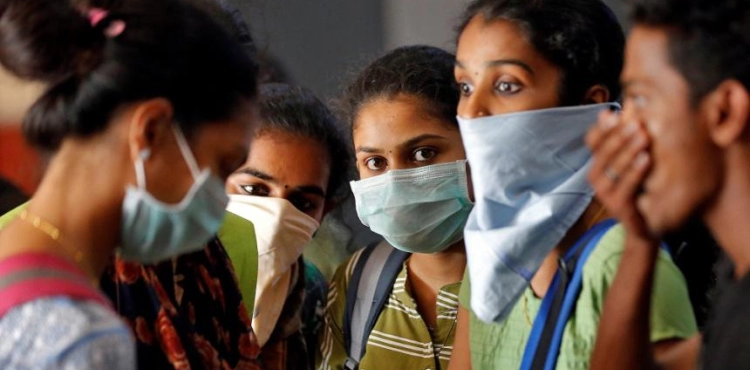In poor countries of Africa and South Asia, doctors lack the essential ingredient needed to save those affected by the Covid-19 epidemic in its most dangerous form, meaning oxygen itself, according to expert warnings.
The current health crisis places a heavy burden on hospital systems even the most advanced of them, with difficulties especially related to providing artificial respirators.
However, experts fear that this interest in the more advanced fissure breathing techniques will overwhelm a need that places a higher priority on the most vulnerable health systems, medical oxygen, which is a major component of intensive care units.
"The reality is that oxygen is the only treatment that will save lives in Africa and the Asia Pacific region at this point," says Hamish Graham, a pediatrician and researcher at the University of Melbourne.
"I fear that the excessive focus on vaporizers will be fatal if the oxygen problems are not solved," he told AFP.
A report published in February on thousands of cases in China showed that nearly 20% of Covid-19 patients needed oxygen.
The emerging corona virus attacks the lungs, causing severe respiratory distress and causing a serious drop in the level of oxygen in the blood.
Graham notes, "The presence of oxygen is self-evident in hospitals in rich countries." But in the rest of the world, "therapists are well aware of the problem as they struggle daily to supply their patients with oxygen."
Many large hospitals in developing countries contain oxygen tanks in operating rooms and medical services, in addition to oxygen generating devices, which are portable equipment that allows the surrounding air to be purified.
However, several studies show that less than half of the hospitals in Africa and Asia-Pacific have oxygen available at any time, according to Graham. Also, a minimum number of these institutions are equipped with pulsed oximetry devices, which are small devices placed at the tip of the patient´s finger to measure the level of oxygen in the blood.
This anxiety is not new in people treating patients with pneumonia, the most deadly infectious disease in children under five.
Despite the adopted local policies, the situation in some regions of Nigeria, one of the countries most affected by this situation, raises "very great concern," according to Adamu Issah of Save the Children (Save the Children) NGO.
This seeing the former doctor told AFP that seeing children "suffering and suffocating" is common, adding, "We feel we are useless. We can´t do much without oxygen."
"The health systems in Africa and South Asia have never been ready for such an epidemic, and they have not invested in respiratory therapies," explains coordinator Evry Breath Counts, Leith Greenside, for its part.
She calls the situation "terrifying".
Although 800,000 children die of pneumonia annually, this disease does not receive the same attention as AIDS, malaria and tuberculosis.
The global health authorities have also "completely neglected" the issue of oxygen, according to Leith Greenslide, which indicates that "the absence of global data (on oxygen supply) will be a major problem to respond to COFED-19 because we are going nowhere and do not know which countries are in greatest need."
"Although the epidemic is still relatively weak in Africa and some parts of Asia, it is likely that a margin of time remains for two months," she noted.
Although it is difficult to predict how the virus will spread in this part of the world, experts are calling for the strengthening of emergency care systems.
"As everywhere, the (epidemiological) curve must be flattened, but if institutions do not have beds in intensive care rooms, or have few of them, as in Malawi, which is 25 beds per 17 million people," says Gwynn Haynes of "Safe the Children." Then the desired goal cannot be achieved. "
This organization works in Malawi, where some injuries were confirmed, with the aim of providing solar oxygen generation devices in light of the weak electrical current network and the absence of oxygen production sites.
But at the height of the health crisis, experts fear the international community will fail to act with the speed needed to bridge this lack of oxygen and other essential supplies in the poorest countries.
In Nigeria, assistance should begin with the delivery of pulse oximeters and then oxygen generators at modest dispensaries, followed by the transmission of respirators, according to Adamu Issah.
"I fear that if this epidemic lasts more than two months, we will have to face very serious problems," he says.
"In Europe and the United States, they may have the ability to meet needs, but not in Africa even in times of peace," Isah added.












